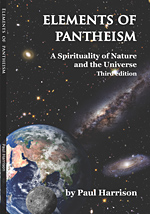The only official statement of the WPM’s beliefs is its credo which is deliberately kept
short and succinct. Matters not mentioned there, and matters of interpretation or detailed
application of the credo, are matters on which the WPM has no official position.
Below are some typical answers to typical questions people ask us.
Sexual Preferences
Individual choices about private personal behaviours are
matters for personal choice. The major criterion is whether physical or psychological harm
is done to other people, especially vulnerable people (eg children), or to animals.
The WPM does not condemn, nor does it favour, any such preferences or
behaviours where they do no harm to others (eg, between freely consenting adults). The
choice is up to the individual conscience in the light of local legislation. We regard it
as absurd for religious bodies to become involved in dictating private personal behaviour
that does no harm.
Drugs and alcohol
Our position here is the same as for sexual preferences: the
WPM does not condemn, nor does it favour, use of any recreational susbtance. The choice is
up to the individual conscience in the light of local legislation. In general, self-harm
is not consistent with a pantheist viewpoint, but what constitutes self-harm is open to
wide interpretation.
Vegetarianism
We do not have any official position on this, because it is
possible to argue a pantheist case in favour of vegetarianism, or in defence of
meat-eating. We have members who are vegetarian or vegan and members who are not. We have
an egroup just for vegetarian issues. We are almost all agreed that farming methods should
be humane and environmentally friendly and should respect animals’ rights to a natural
life
Sexism, racism, homophobia
We are opposed to all forms of discrimination.
Politics
We are a religious non-profit body. We do not endorse any particular political
party or policy and we have members from both ends of the political spectrum and the
middle. We do have some basic social and environmental ideals, and these are laid out in
the credo clauses three and
four.
The afterlife
The credo does not support belief in a conscious personal
individual afterlife but envisages that our elements merge back into nature while our
memories live on in living people through kindnesses, actions, creations, descendants and
so on.
The supernatural
The WPM takes a naturalistic and scientific position.
Extraordinary claims require extraordinary evidence. There may be anomalous phenomena that
are as yet unexplained, but if these are proved to be real, they must be the result
of natural physical processes.

